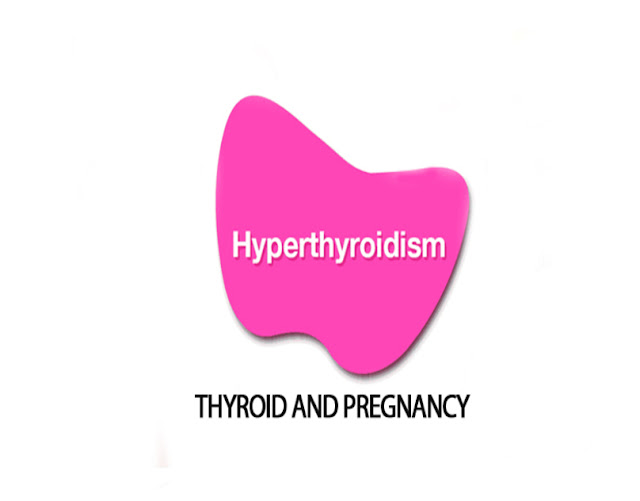Thyroid And Pregnancy-Things To Know About Their Relation
Overview
Pregnancy
can be a delightful time for a woman as she supposes to have a baby
after some period of time. But what if she gets caught by a thyroid
disease! This can prove to be a hard time for her as diseases of
thyroid like hypothyroidism and hyperthyroidism are relatively common
at the time of pregnancy and it becomes crucial to treat such
conditions.
Thyroid
hormones are important to ensure healthy fetal development of both
brain and nervous system throughout the first three months of
pregnancy since the baby is depended on the hormones of her mother
that are delivered through the placenta. After a period of around 80
days, the thyroid gland in the fetus gets able to originate its own
thyroid hormones.
Hyperthyroidism
In Pregnancy Effects On A Baby
Different
types of hormonal and physiological changes are there in a normal
pregnancy which alters thyroid function. Such changes mean that a lab
test for thyroid function must be interpreted with caution at the
time of pregnancy. As we talked about how the baby is depended on his
mother for the production of a hormone in the initial time but gets
able to produce thyroid hormone by its own by the end of the first
trimester. Still, he will remain dependent on her mother for
ingestion of adequate amounts of iodine that is necessary to make the
thyroid hormones.
According
to the research of the World Health Organization, it has been
recommended to take iodine of about 200 microorganisms per day at the
time of pregnancy to maintain sufficient thyroid hormone production.
Hyperthyroidism
during Pregnancy
There
are some symptoms of hyperthyroidism
during pregnancy
like tiredness, faster heart rate and trouble dealing with heat. Even
untreated hyperthyroidism at the time of pregnancy can create
unfavourable effects like miscarriage, low birth-weight, and
premature birth, thyroid storm that is a sudden and severe worsening
of symptoms along with preeclampsia that is known to be a hazardous
rise in blood pressure in late pregnancy.
There
can be some other symptoms like weak muscles, especially in the
thighs and upper arms, difficulty in sleeping, eye sensitivity to
light, irregular menstrual cycles, confusion, etc. That is why a
woman needs to take help from the doctor at such cases with immediate
effect.
Causes
of Hyperthyroidism on Pregnancy
One
of the common causes
of hyperthyroidism
that can be found in pregnancy
is Graves's disease. Studies explain that such diseases are caused by
an antibody which stimulates the thyroid too much, in turn, causing
the overload development of thyroid hormone. Graves' disease is
considered an autoimmune disorder that is a dysfunction of the body's
immune system. It proves to be one of the common diseases among
middle-aged women and tends to run in families. There are different
types of complications that a woman needs to be aware of
hyperthyroidism. Like there is an increased risk of miscarriage in
the initial stages of pregnancy if hyperthyroidism is not supposed to
be under control.
Graves'
disease contains almost the same symptoms like hyperthyroidism. Along
with that, some other symptoms like bulging eyes thickened skin over
the shin area and goiter that is an enlarged thyroid which may cause
a bulge in the neck may be found.
If
a lady has mild hyperthyroidism
during pregnancy,
she probably won't require any treatment. If it is linked to
hyperemesis gravidarum, she only needs treatment for dehydration and
vomiting. If it is more severe, then the physician may prescribe
anti-thyroid medicines that are helpful in causing the thyroid to
makes fewer thyroid hormones. This type of treatment in pregnancy
avoids too much of thyroid hormone from getting into the bloodstream
f the baby.
There
might be a need to visit a specialist like an endocrinologist or
those who are expert in maternal-fetal-medicine that can cautiously
monitor the baby to make sure a woman is getting a proper dose. Small
amounts of medicines related to treating thyroid will move into the
baby's bloodstream and eventually lowers the amount of thyroid
hormone made by the baby.
But
a person needs to have healthy information about the procedure of
hyperthyroidism and pregnancy, about its treatment and risks. For
example, if a woman is taking anti-thyroid drugs, there comes a
slightly increased risk of the baby originating structural
abnormalities. This is the reason why some patients use to go for
definitive treatment for Graves' disease with surgery or radioactive
iodine before considering pregnancy. In order to check the thyroid
hormone levels, you can have a blood test after a few weeks of giving
birth.

Comments
Post a Comment